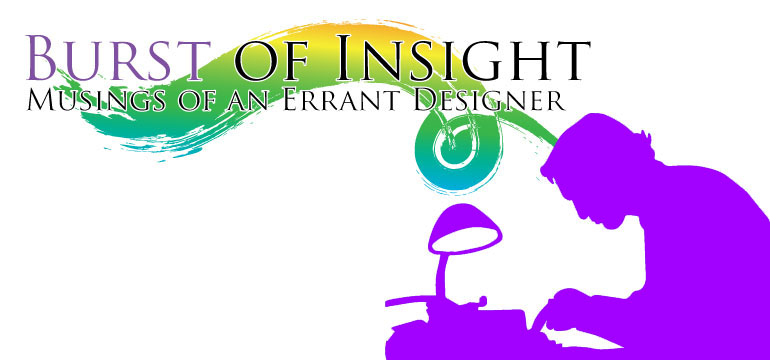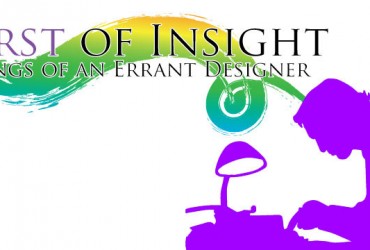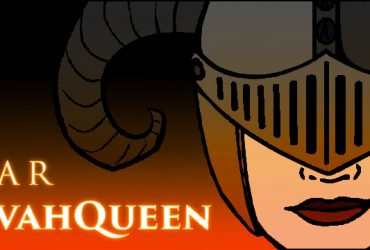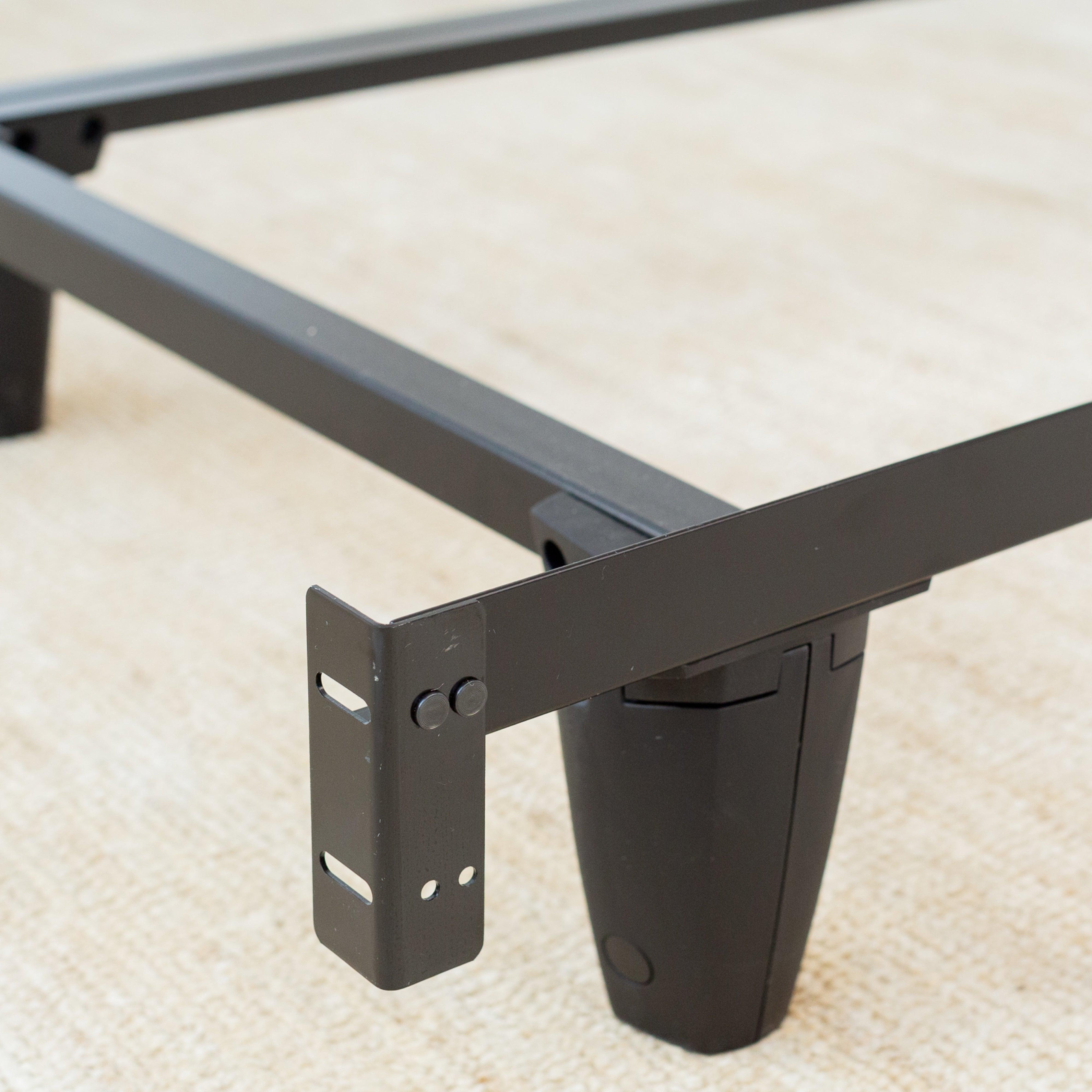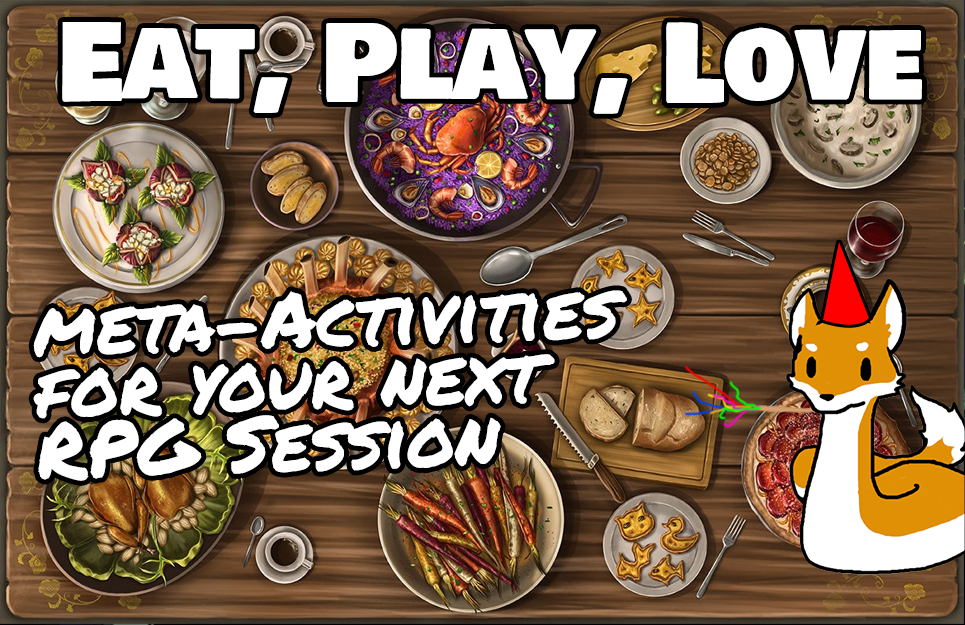Two weeks ago, we began a round-table interview with several celebrity GMs, Savannah Broadway (freelance editor and designer), Troy Lavalee (GM and producer of the Glass Cannon Podcast), Nicolas Logue (freelance designer) and Alan Venable (2016 Iron GM). We return this week for the conclusion of that interview.
I’m sure the demands of The Glass Cannon and Iron GM dictate that you play and run your event games a little differently than you might for a regular home game. How do you prepare differently for your home game than you do for those event games?
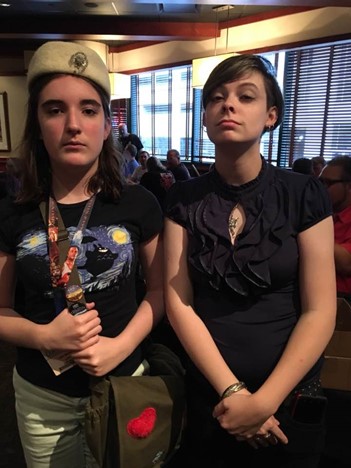
Savannah (right) shows her protege Kate (left) how to stare down temperamental players.
Savannah: I don’t bother with music or props at conventions most of the time, due to logistical issues, but I do use montages a lot more at Cons. They’re great for controlling your timeline when you’re on the clock. Mainly, my home game gives me more time with the players, allowing me to work with them on backstories, NPCs connected to their character, and so on. Often, I do text-based one on one sessions with players and NPCs to allow them to discuss private subjects, or just to get to know a character better. It leaves more time to focus on the group’s goals in-game, and helps the players see the other people in the world as something more than props or walking bags of XP.
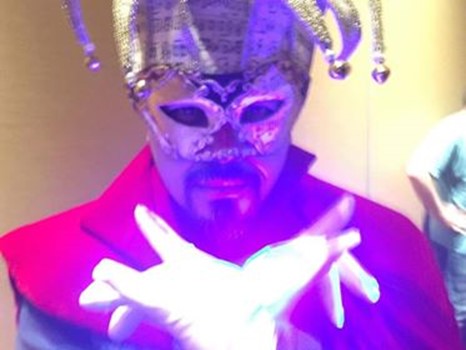
Alan works some GM magic.
Alan: In home games, I tend to run year-long campaigns. This allows my players to get comfortable with their characters before I run the Big Bad at them. They also tend to have time to develop relationships with other characters and NPCs.
With Event Games, it’s more of an improvisational exercise than anything. A GM might only ever see these players and characters only for the one-shot. Prep becomes even more of a skeleton for a plot with the caveat of being able to roll with the many, many twists the players may throw at you, allowing the players ample opportunity to have just enough rope to hang themselves.
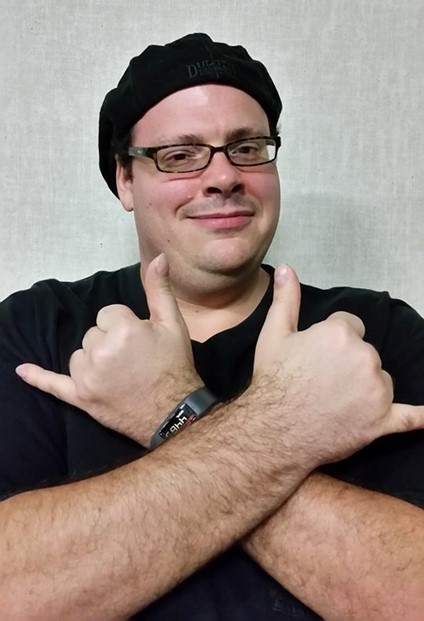
Nick is happy because we didn’t post him getting kicked again.
Nick: My home games differ in only one regard – I know the players and I know exactly what most of them enjoy, so I tailor everything to suit those needs. For an event, I strive to get a good sense of the players as quickly as possible, and as innocuously as possible, usually just through pre-game chit chat and introductions. I keep it very light and relaxed always. The narrative is intense, but my interactions with stranger-players is always of the utmost politeness. I want everyone to feel comfortable and able to really dig into the game and express themselves through their characters without worrying about being judged for it.
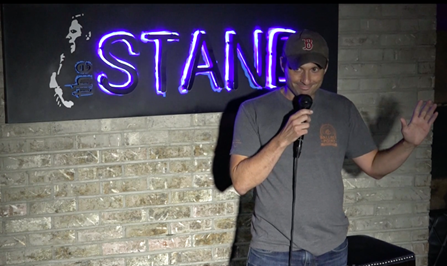
Troy while not hosting the Glass Cannon Podcast.
Troy: It’s like being on vacation. Sadly, with the demands of the show and a second show in the works, my time for playing non-recorded games has dwindled to almost never. I’ve been running a Jade Regent campaign for the past four years. We just had our first session in a long time on September 16th. Our last session before that was January 21st, 2017! I’d say the only real difference with my prep is I feel more comfortable “improvising” encounter prep in the moment with my off-air games. If I don’t know exactly how a certain spell/feat/power works, I don’t mind taking a second to look it up and telling everyone to talk amongst themselves. I don’t have that luxury on the show. I also think my off-air games make the podcast better because I can experiment with new techniques both in terms of my preparation and in-game management, then see if it’s something I can bring to the podcast to make things more efficient.
Although I’m getting better, I’m terrible at notes. I take a whole bunch up front and sometimes a few between sessions and some midsession but it’s really more disorganized than I care to admit. What sort of note taking and record keeping do you do?
Savannah: I try to leave a synopsis in the Discord group created specifically for the game at the end of each session, but ultimately call for a group recap at the beginning of each session. I’m terrible at consistent notes, but a fair hand at remembering narrative, so I emphasize to the players that if they want to keep the mechanical cockatoo they found, or know how many magic, dragon-slaying arrows they have, they need to write that down.
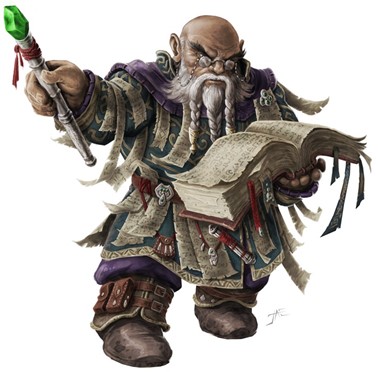
“According to my notes, Alex gets this cool green tipped wand of ‘we didn’t roll high enough’ and Monica gets . . . the seven ‘clearly normal’ arrows”
Alan: I have my players recap previous sessions. This brings everyone together at the beginning of each session, and helps everyone get back into the mindset of their characters. Rewarding the recap with experience points or other goodies gives a great incentive for most players. Important information, like NPC names and roles, tend to go into a notebook or spreadsheet made specifically for the current game, as well as keeps the GM on track.
Nick: I am awful at notes. It’s why I mostly run one shots. I tend to forget things I’ve run almost immediately after running them. Even when I run the same one-shot, it’s nothing like the first time usually. For the few multi-session games I run, I do rely heavily on the players to take notes on their sheets, which I take with me and review before the next session. Sometimes it’s helpful to assign one player as the “scribe” or “archivist” in a campaign – pick someone with legible handwriting! 🙂
Troy: Hahaha. Record every session and designate players to keep track of loot. Let them do work for a change!
So now we’ve prepared the game, how do you maintain player engagement at the table?
Savannah: I ask them to help me build the world around them–characters, towns, rumors, you name it. The trick is to make it feel like they have agency without making them feel like they’re doing your job for you, so don’t lean on this too often. It’s a good thing to try when there’s a lull in story, or you see someone start to disengage. Just remember: this is to help them have fun, not to call out a person you don’t think is listening.
Also, I try to check in during breaks (especially during Con games or one-shots) and ask what sorts of things they want to see in the session–should there be a car chase? A chance for your character to join a shadowy cult?–and make a note to work it in.
Alan: Again, communication is key. I talk to my players about what possible tragedy might befall them just before the session, staying as vague and mysterious as I can so as to entice them into the trap. Each player brings something to the table, as does each character. If I can get each character a “Spotlight” moment each couple of sessions, the players stay engaged. Get to know what the players want, and let them live vicariously through their characters to get it. Of course, make sure they have earned it by putting little obstacle in their way, but in the end, GMs are ultimately on their players’ side. They want the PCs to win, but mostly at a cost.
Nick: I use music, and a lot of energy. I never sit down when I’m running a session, at least not in the first hour or so. I want to keep the energy pouring on thick, and make sure people feel like they are part of something extraordinary. If you care enough to get into the story, chances are the players will want to involve themselves as well. Make sure you don’t lose any one. Include something for every character in every scene. A connection to one of the NPCs. A challenge that suits their skill-set. A foil that gives them a chance to be creative. Also, let them be awesome sometimes. Not every encounter has to test them to their limits. Sometimes it’s nice to let them flex their muscles and feel like the heroes they are supposed to be – this plays to a larger note – vary the challenge, pacing, and style of every scene. Throw in a puzzle or a deception, some tense role-playing, an amusing comic-relief side-NPC for the PCs to interact with, some personal moments for their characters, and of course some epic battles. There’s room for everything, and the more interesting opportunities for all manner of drama you throw at your players, the more the whole experience will feel like a finely wrought tale.
Troy: it’s really important that my energy is uplifting and infectious, especially if the players are having a bad day or not in the mood or sad because I just killed another one of their characters. I rarely sit down during the course of a session and almost never during combat. I like to be moving around and getting up in people’s faces, reiterating the stakes to them as much as possible and just doing my best to keep the players living and dying on each dice roll. If someone pulls out a phone, I make fun of them. If I see someone zoning out, I shame them. Ultimately though, I think player engagement is as much on the players as it is the GM. I’m always going to show up having put a ton of time into the prep of the actual session, so it’s the individual player’s jobs to not only show up prepared but also show up ready and pumped to play. I think a lot of players feel like they’re Elizabethan royalty and the GM is the court jester. “Amuse me, clown.” It needs to be a team effort. I know I’m doing my work. If my players aren’t picking up what I’m putting down, then their invite to the next session might get lost in the mail.
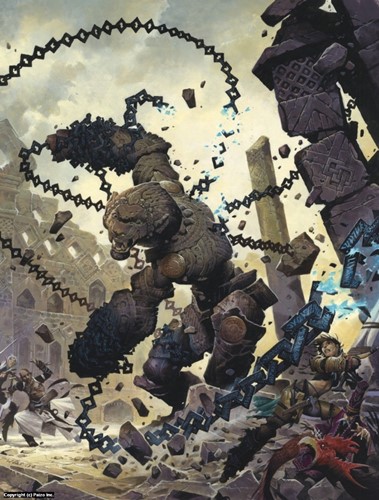
If the player’s attention wanes crash the party with a cry of, “Roll for initiative!”
How do you maintain excitement between sessions?
Savannah: I set up a Discord for the group and make sure there are spots for game-inspired art, roleplay, fiction, that sort of thing. It helps to grow the world, and it’s fantastic to see the art that the game inspires. Also, I try to give small “homework” assignments like “Write a love-letter from the first mate to the captain. Extra points if it’s full of piratey phrases.” They’re not mandatory, but they’re fun.
Alan: At the end of every session I have a five to ten minute summary of what happened, so as to remind the players of how awesome (or otherwise) they were. We go around the table and share our favorite part of the session and also ask questions. This allows the players to tell each other how cool the others are, and at the same time ask questions about each other “out of character.” My favorite games are where the players have wild theories and conjecture about the plot that are actually better than what I had written. Then comes the following sessions that lead to their eventual validation of their theories, which then lay the groundwork for even more questions!
Nick: Cliffhangers…always. Leave em dying to know what happens next and thirsty for more. If you set up some nice pay-offs that will come next session (like getting revenge on an old contact who sold you out this session, or finally finding out the identity of a mastermind behind an evil plan that’s been ongoing for a session or two), they’ll be drooling for the next game night. Also, it never hurts to make a gaming day into a theme. Gonna play a great super-hero themed game? Maybe all go to see the latest MARVEL movie the Friday before your Saturday game to get people in the mood. I’ve occasionally thrown a little party with themed food, drink, etc. to get people in the right mindset for the flavor of the game we’ll be playing too. Think of the game as a full-on experience and don’t shy away from anything that can add to the experiential nature of our favorite hobby.
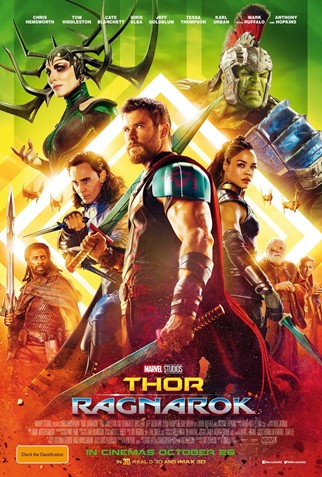
Troy: This is super important, especially as the people around the gaming table are getting older, getting married, having kids, etc. and the time to play Pathfinder may not be a top priority anymore. Keeping the excitement going is your only chance of ever finishing an Adventure Path, which to me is the litmus test for having “leveled up” as a gamer in this hobby. The easiest way I do this is with cliffhangers. It obviously works well for the podcast to keep the audience coming back every week, but it’s equally important to have your players walking away from the table salivating at the thought of what could happen next. That’s what’s going to get people wanting to play another session, thinking about their character between games and antsy to get the next one underway. I also like to send out email recaps of the previous session within 24 hours after we finish with a bunch of possible dates for the next time we can play. It’s an uphill battle trying to get five to six 30-40 year olds in a room together. Whatever you gotta do to make that happen, it’s the GM’s job to be the ringleader. When in doubt, bribe them with promises of alcohol and fine artisanal cheeses.
I’d like to thank everyone again for participating in this first-ever Burst of Insight: Ask the Experts panel. This was so much fun there is already a sequel in the works with a new topic and different experts…stay tuned for more details.

